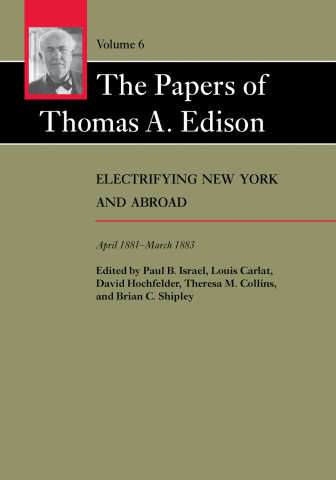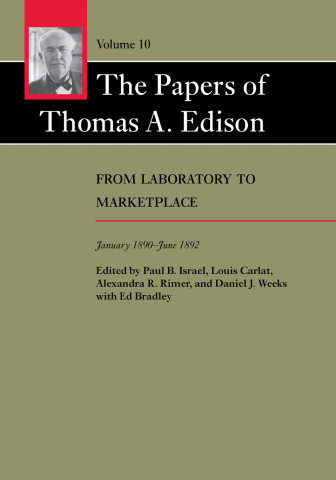With his move from Menlo Park, New Jersey, to New York City at the end of March 1881, Edison shifted his focus from research and development to the commercialization of his electric lighting system. This volume of The Papers of Thomas A. Edison chronicles Edison's central role in the enormous effort to manufacture, market, and install electric lighting systems in the United States and abroad.
Standard studies of this period emphasize the inauguration of the commercial electric utility industry at the Pearl Street central station. Edison and his associates, however, audaciously operated on a...
With his move from Menlo Park, New Jersey, to New York City at the end of March 1881, Edison shifted his focus from research and development to the commercialization of his electric lighting system. This volume of The Papers of Thomas A. Edison chronicles Edison's central role in the enormous effort to manufacture, market, and install electric lighting systems in the United States and abroad.
Standard studies of this period emphasize the inauguration of the commercial electric utility industry at the Pearl Street central station. Edison and his associates, however, audaciously operated on a global scale, not just focusing on the major cities of North America and Europe but reaching simultaneously from Appleton, Wisconsin, to Australia, through the Indian subcontinent and East Asia, to Central and South America.
Praise for The Papers of Thomas A. Edison:
"A mine of material... Scrupulously edited... No one could ask for more... A choplicking feast for future Edison biographers—well into the next century, and perhaps beyond."—Washington Post
"What is most extraordinary about the collection isn't necessarily what it reveals about Edison's inventions... It's the insight into the process."—Associated Press
"Those interested in America's technological culture can eagerly look forward to the appearance of each volume of the Edison Papers."—Technology and Culture
"His lucidity comes through everywhere... His writing and drawing come together as a single, vigorous thought process."—New York Times
"A triumph of the bookmaker's art, with splendidly arranged illustrations, essential background information, and cautionary reminders of the common sources on which Edison's imagination drew."—New York Review of Books
"In the pages of this volume Edison the man, his work, and his times come alive... A delight to browse through or to read carefully."—Science
"Beyond its status as the resource for Edison studies, providing a near inexhaustible supply of scholarly fodder, this series... will surely become a model for such projects in the future... The sheer diversity of material offered here refreshingly transcends any exclusive restriction to Edisonia."—British Journal for the History of Science






